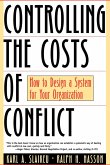This is an examination of one of the most puzzling and important issues in western economic analysis - corporate inertia in the face of known threats to survival. Why is it that large and powerful corporations, which have dominated industrial markets for decades, suddenly become uncompetitive? Erica Schoenberger seeks to understand his apparently irrational behavior through and investigation, on the one hand, of corporate culture, and on the other of institutional and cultural change in the advanced economics of the western world. The book is based partly on recent work on the subject in the US and Europe, and partly on the author's own intensive case studies of firms such as Lockheed and Xerox. Conventional concepts of corporate culture and identity used in business strategy are, the author argues, flawed: they have not only resulted in a widespread inability to adopt appropriate strategies for change, but in misguided decisions on location, manufacturing method, product design, use of new technology, and employment practice. The stakes surrounding these errors of judgement are high. They involve the social and economic well-being of large numbers of people: industrial competitiveness is not the only factor in social well-being - and becoming competitive can itself result in dislocations and distress. But not being competitive at all is worse. This is a pioneering investigation of corporate culture and behavior in the wider context of social and economic change. Innovative in its approach, original in its perspective, and accessible and hard-hitting in its conclusions, The Cultural Crisis of the Firm will be required reading both within the community it examines and among those who seek to understand the recent history of the large corporation.
Hinweis: Dieser Artikel kann nur an eine deutsche Lieferadresse ausgeliefert werden.
Hinweis: Dieser Artikel kann nur an eine deutsche Lieferadresse ausgeliefert werden.








